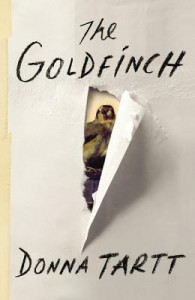 While listening to an episode of the Bookragous podcast they had a topic on Plot, Character, and Style and I thought that was interesting and maybe something I can explore further. For those of you that are not aware the concept was taught to one of the podcasters in how to help sell books. If you are not sure what to recommend, ask the customer to rate plot, character and style in the order of personal preference. This can help narrow the type of book to recommend which is a nice idea but my initial reaction was, ‘This wouldn’t work for me.’
While listening to an episode of the Bookragous podcast they had a topic on Plot, Character, and Style and I thought that was interesting and maybe something I can explore further. For those of you that are not aware the concept was taught to one of the podcasters in how to help sell books. If you are not sure what to recommend, ask the customer to rate plot, character and style in the order of personal preference. This can help narrow the type of book to recommend which is a nice idea but my initial reaction was, ‘This wouldn’t work for me.’
When picking books, my preference is towards a book that explores interesting themes; I want a book that challenges me and offers me some new idea to explore. I know I’m different but recently in a review of Divergent I wondered if people read books for plots or themes. I suspect I’m the odd one out but I had it in my head that people like themes over plot. However, I think I may be the only person that picks up a book thinking it will explore some nice themes rather than plot, characters or style.
If I were to pick preferences, I would say style is the most important thing in a book, characters have to be interesting but plot doesn’t really matter as much. I would want the characters to be developed and complex; if you have a good style and characters you don’t need a plot at all. This obviously comes down to personal preferences, but this does bring me to one of my bête noires, likeable characters.
I hate it when people say they don’t like a book because the characters are not likeable. What is the point of that? Why would you want all characters to be likeable? I know this post is about to turn into a rant but I need to say it. In life we know that not everyone is going to be good or likeable, so why except differently in a book. We read to discover new worlds and experience new things; it is impossible to explore some themes or subjects if everyone is likeable.
Look at The Catcher in the Rye as an example; would this modern classic work if the characters were likeable? I have to admit that I read The Catcher in the Rye when I first started reading and I didn’t enjoy it because Holden was whiny and annoying. This is something I hate to admit because I’ve been an advocate for unlikeable characters and transgressive fiction as of late. I feel like I have come to a point in my life where I’m going to have to reread The Catcher in the Rye again just so I can get it right.
To get back on track, let me know in the comments below what your preferences are between plot, characters and style. Also do you think themes are important in a book or am I just a minority. We can also complain/debate about hating books because of unlikeable characters in the comments as well. I just wanted to explore my thoughts in a stream of conscious style; that is why this is a little all over the place.

 Title: My Salinger Year (
Title: My Salinger Year ( Title: The Sorrows of Young Werther (
Title: The Sorrows of Young Werther ( Title: The Goldfinch (
Title: The Goldfinch ( Title: The Catcher In The Rye (
Title: The Catcher In The Rye (